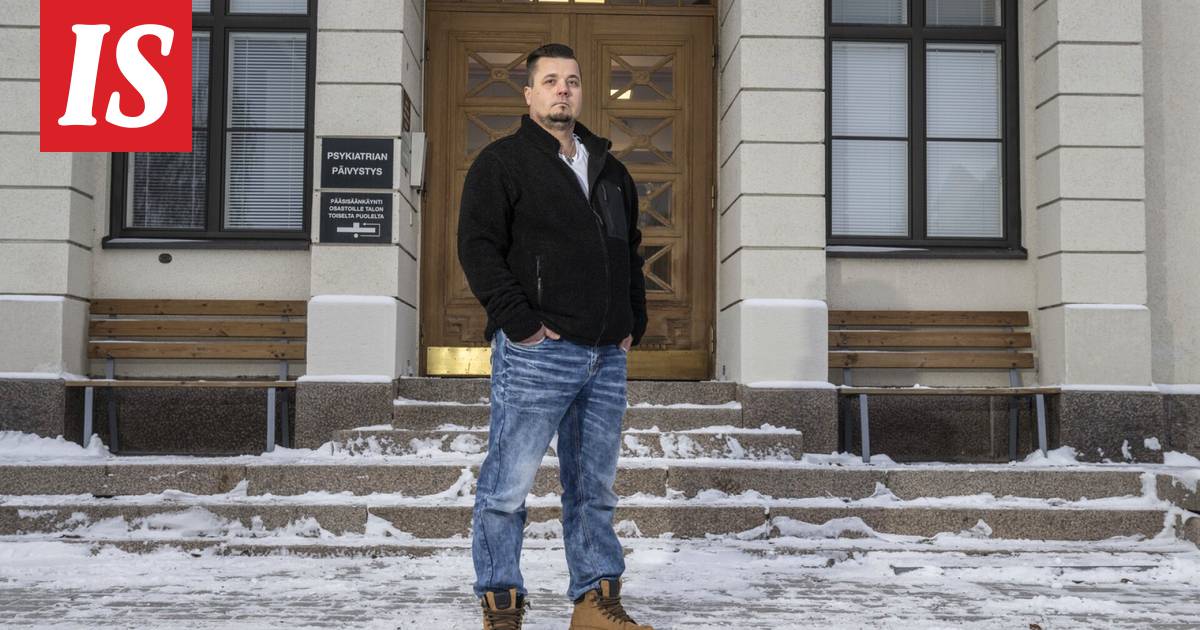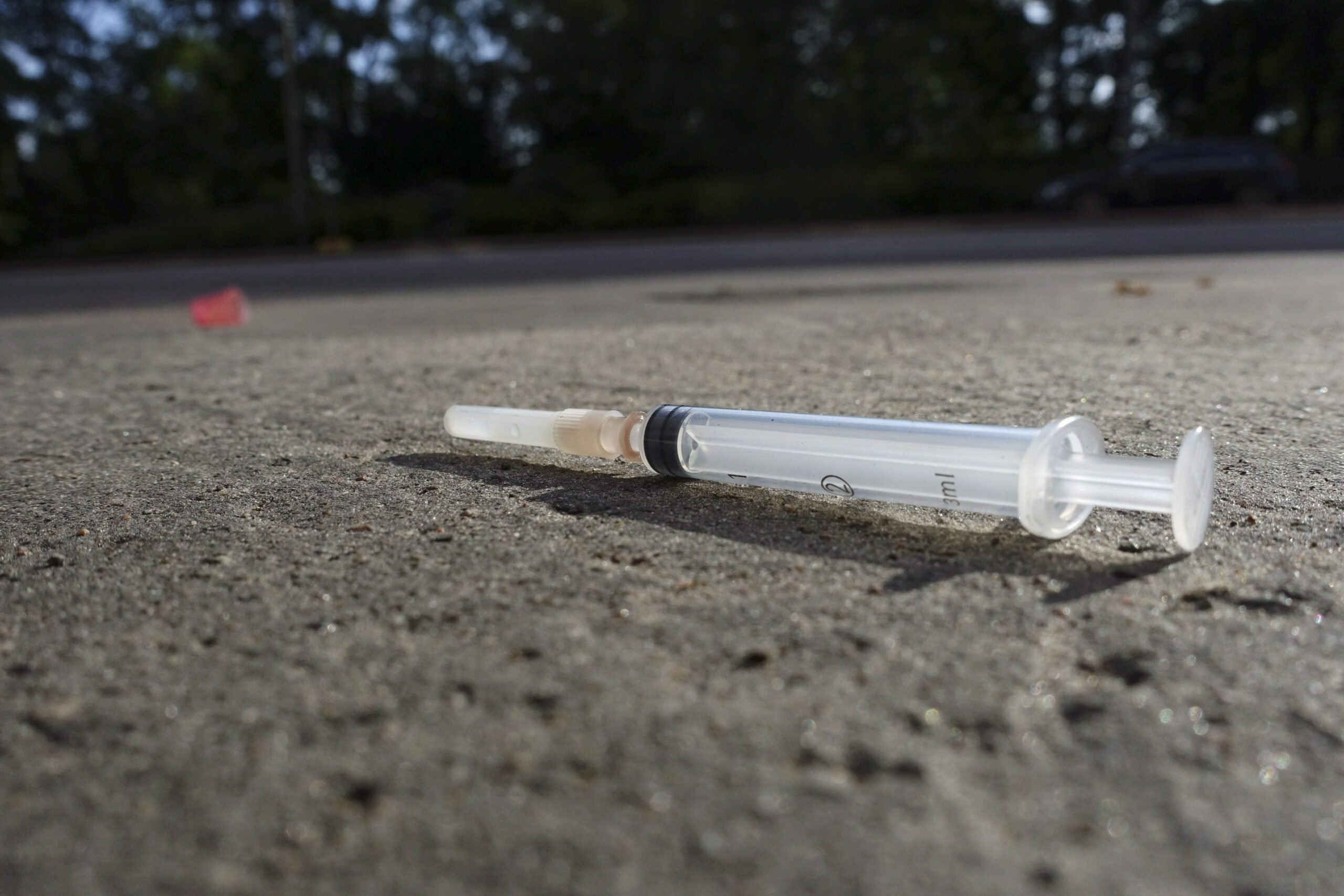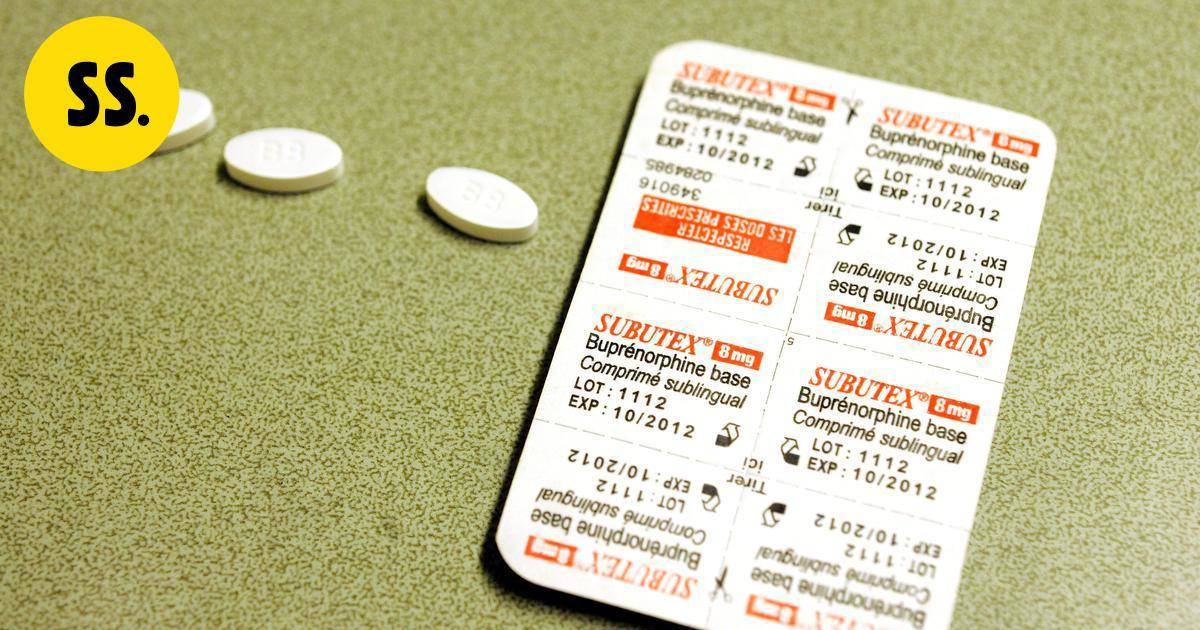On a recent morning, Janina Rager, a community-engagement specialist with the Eugene police, roused a man who was sprawled in front of Gardner Floor Covering, a family-run store downtown. She asked him to leave and clean up the garbage that surrounded him, including bits of aluminum foil that are typically used as wrappers for meth or fentanyl.
The shop’s owner, Matt Siegmund, said the number of people loitering and doing drugs in front of his store has doubled since the measure passed. Customers are scared to walk in now, he said. Each morning, his employees must clear the sidewalk of debris that often includes feces or needles.
“It just keeps getting worse,” said Siegmund. “I feel like these people on the streets have more rights than I do.”
Matt Siegmund, owner of Gardner Floor Covering, says drug users who congregate in front of his store in Eugene leave garbage and scare off customers.
Rager swings by frequently to shoo people away, but the problem is unceasing. Eugene Police Chief Chris Skinner said most officers in his department, like Alvarez, have given up on issuing the drug-possession tickets.
“We don’t see people getting well as a result of issuing citations, and so it’s hard to get really excited about doing that work,” the chief said.
No reason to stay sober
On a recent weekday in downtown Portland, a man explained the varieties of fentanyl to a tourist who wanted to know what everyone was smoking off of small squares of aluminum foil. There were dozens of people doing it in the area, some swaying like zombies, others crumpled on the sidewalk.
The man said getting arrested three years ago motivated him to get clean. He got a job at a gas station and stayed sober because it was required while he was on probation. But as soon as he finished probation last fall, he was back on drugs.
“I didn’t have a reason to keep clean and sober after that,” he said
Advocates for Measure 110 hope to have a more lasting effect by getting people into treatment voluntarily. Joe Bazeghi, the director of engagement for Recovery Works Northwest, said his organization, which is funded under the new measure, is now setting up rehab facilities for people addicted to fentanyl and making progress in persuading people to request treatment.
Joe Bazeghi, at his drug-rehab facility in Portland, says his group is persuading more people to seek treatment.
Bazeghi said he visits homeless encampments around Portland where he first tries to help people with basic needs such as health insurance, housing or food. Only later does he begin to talk to them about rehabilitation, based on his own experience with recovery.
“We go in as peers ourselves,” he said. “Everyone has been very welcoming to us.”
Changing course
Other states that once seemed likely to follow Oregon’s lead are pumping the brakes. Earlier this year Washington’s Democratic Gov. Jay Inslee signed a law that boosts funding for treatment while maintaining criminal penalties for drug possession.
Oregon State Sen. Floyd Prozanski, a Democrat from the Eugene area who chairs a subcommittee focused on Measure 110, said he wants to see fixes to the law in next year’s legislative session. One idea on the table is taking people off the streets for 72 hours after they overdose.
Prozanski said he opposes bringing back criminal sanctions for drug possession.
Max Williams, former director of the Oregon state prison system, said he is skeptical the state legislature will make adequate changes to the law. He heads a group preparing a measure for next year’s ballot that would again make it a crime to possess hard drugs such as fentanyl, while keeping in place the new funding for treatment, which comes from cannabis taxes.
“There is an old expression that states are the laboratories of democracy,” said Williams. “But that’s sort of distorted when you’re not the laboratory but you’re the lab rat.”
Jon Kamp contributed to this article.

 yle.fi
yle.fi












 Liberaaleissa länsimaissa harmaat kilpailijat vain lisääntyvät, kun joku saa lisenssin, koska synergia. Näin kävi Coloradossa ja näin on ollut aina Hollannissa.
Liberaaleissa länsimaissa harmaat kilpailijat vain lisääntyvät, kun joku saa lisenssin, koska synergia. Näin kävi Coloradossa ja näin on ollut aina Hollannissa.